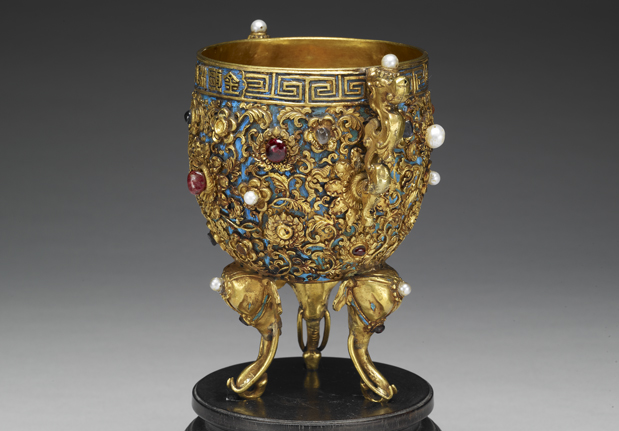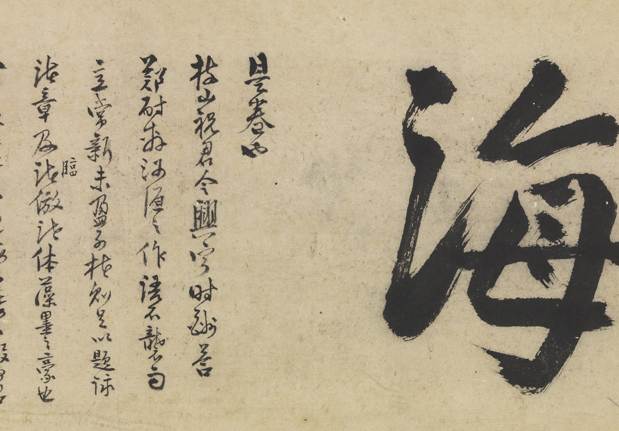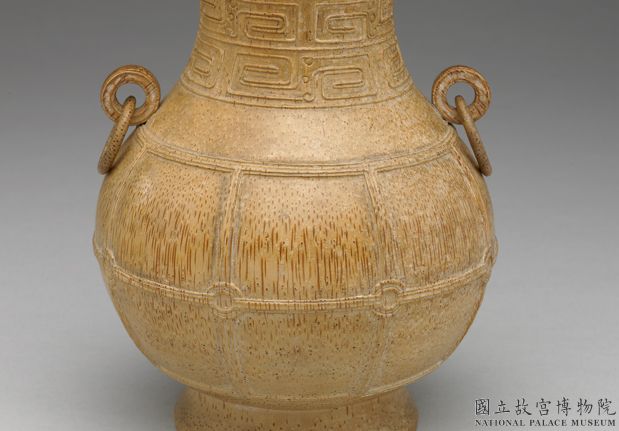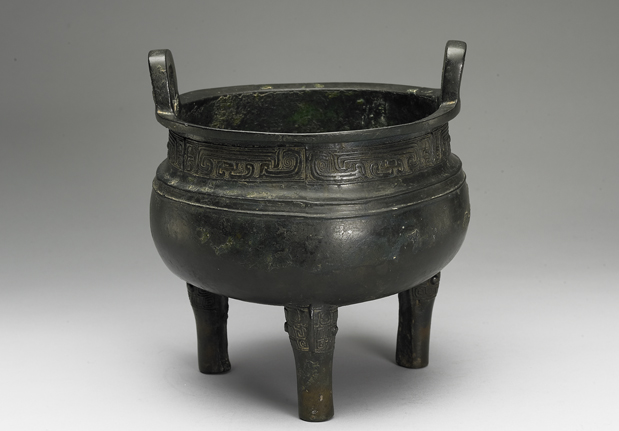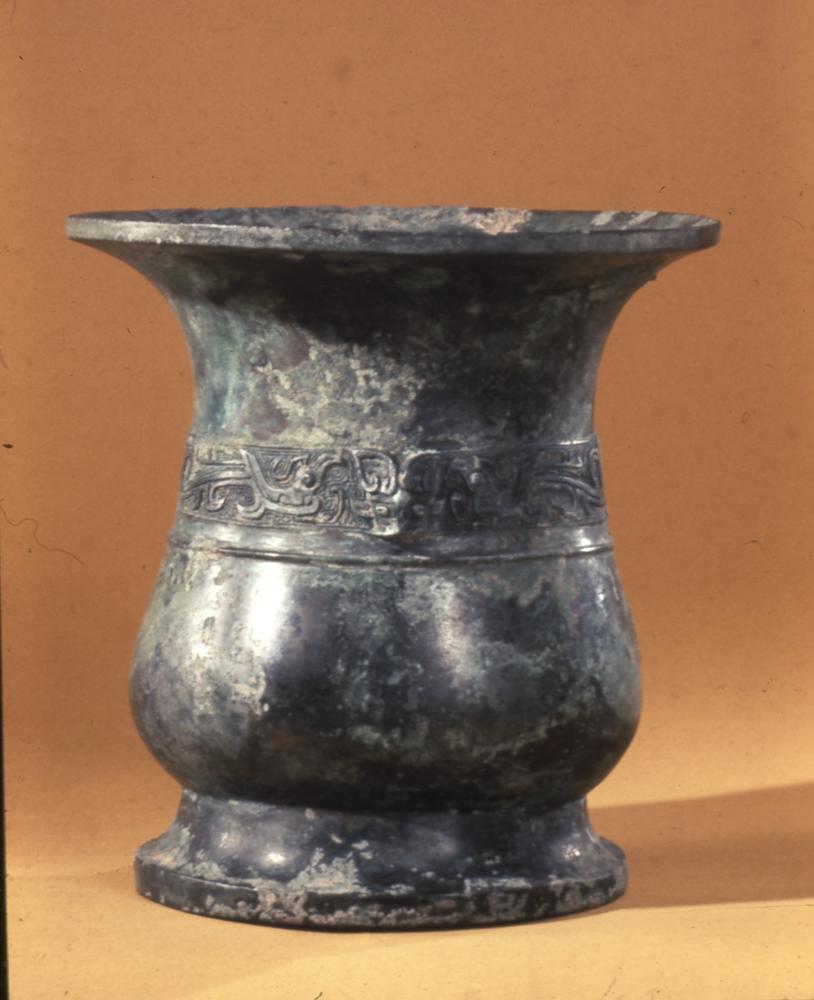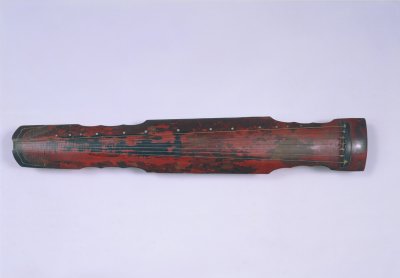Period:Ming dynasty Production date:1600-1620 (circa)
Materials:porcelain
Technique:glazed, underglazed,
Subjects:bird insect
Dimensions:Diameter: 8.20 centimetres Height: 3.20 centimetres
Description:
Porcelain tazza with underglaze blue decoration. Unique in the British Museum’s collections, this miniature tazza or offering dish has an unusual angular profile. Its shallow dish has rounded sides and an everted rim. It stands on a low flared stem with a recessed base. Its decoration is only outlined and not infilled in underglaze cobalt blue, placing it with a group of other late Wanli period porcelains with ‘pencil-style’ decoration. Inside a sprig of hollyhock and a chrysanthemum spray are depicted, with fabric, draped rocks and insects in a double ring, and in the cavetto a bird in flowering branch motif is repeated once. The outside is plain apart from four outlined ‘lingzhi’ fungi on the dish and two on the stem. The base carries an apocryphal six-character Chenghua mark in a double circle.
IMG
![图片[1]-tazza BM-1947-1018.2-China Archive](https://chinaarchive.net/Ming dynasty/Ceramics/mid_00262915_001.jpg)
Comments:Harrison-Hall 2001:Six miniature tazzas of this form but with different decoration were recovered from the Witte Leeuw, a Dutch East Indiaman which sank in 1613 (see BM 1921.1107.1). A large number of such tazzas was also found among the recovered cargo of the Banda, wrecked off the coast of Mauritius in a storm in 1615. It is interesting that this uniquely Chinese shape was being marketed to European customers in the early seventeenth century, for whom its use as an offering dish must have been obsolete.
Materials:porcelain
Technique:glazed, underglazed,
Subjects:bird insect
Dimensions:Diameter: 8.20 centimetres Height: 3.20 centimetres
Description:
Porcelain tazza with underglaze blue decoration. Unique in the British Museum’s collections, this miniature tazza or offering dish has an unusual angular profile. Its shallow dish has rounded sides and an everted rim. It stands on a low flared stem with a recessed base. Its decoration is only outlined and not infilled in underglaze cobalt blue, placing it with a group of other late Wanli period porcelains with ‘pencil-style’ decoration. Inside a sprig of hollyhock and a chrysanthemum spray are depicted, with fabric, draped rocks and insects in a double ring, and in the cavetto a bird in flowering branch motif is repeated once. The outside is plain apart from four outlined ‘lingzhi’ fungi on the dish and two on the stem. The base carries an apocryphal six-character Chenghua mark in a double circle.
IMG
![图片[1]-tazza BM-1947-1018.2-China Archive](https://chinaarchive.net/Ming dynasty/Ceramics/mid_00262915_001.jpg)
Comments:Harrison-Hall 2001:Six miniature tazzas of this form but with different decoration were recovered from the Witte Leeuw, a Dutch East Indiaman which sank in 1613 (see BM 1921.1107.1). A large number of such tazzas was also found among the recovered cargo of the Banda, wrecked off the coast of Mauritius in a storm in 1615. It is interesting that this uniquely Chinese shape was being marketed to European customers in the early seventeenth century, for whom its use as an offering dish must have been obsolete.
© Copyright
The copyright of the article belongs to the author, please keep the original link for reprinting.
THE END
